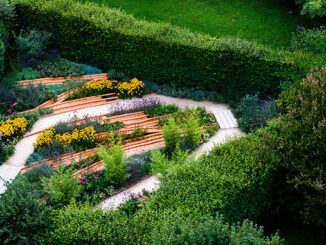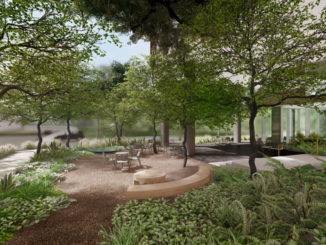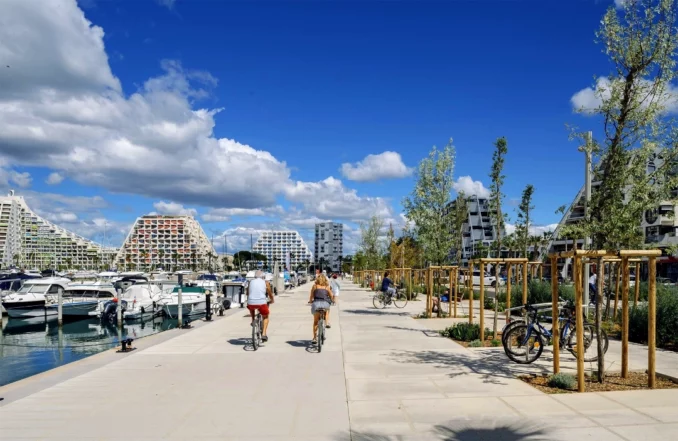
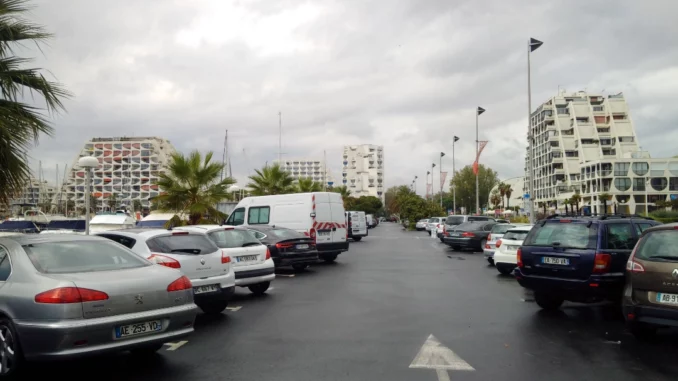
La Grande Motte has long epitomized the massive concrete development of the coastline and symbolized the clichés of popular tourism.
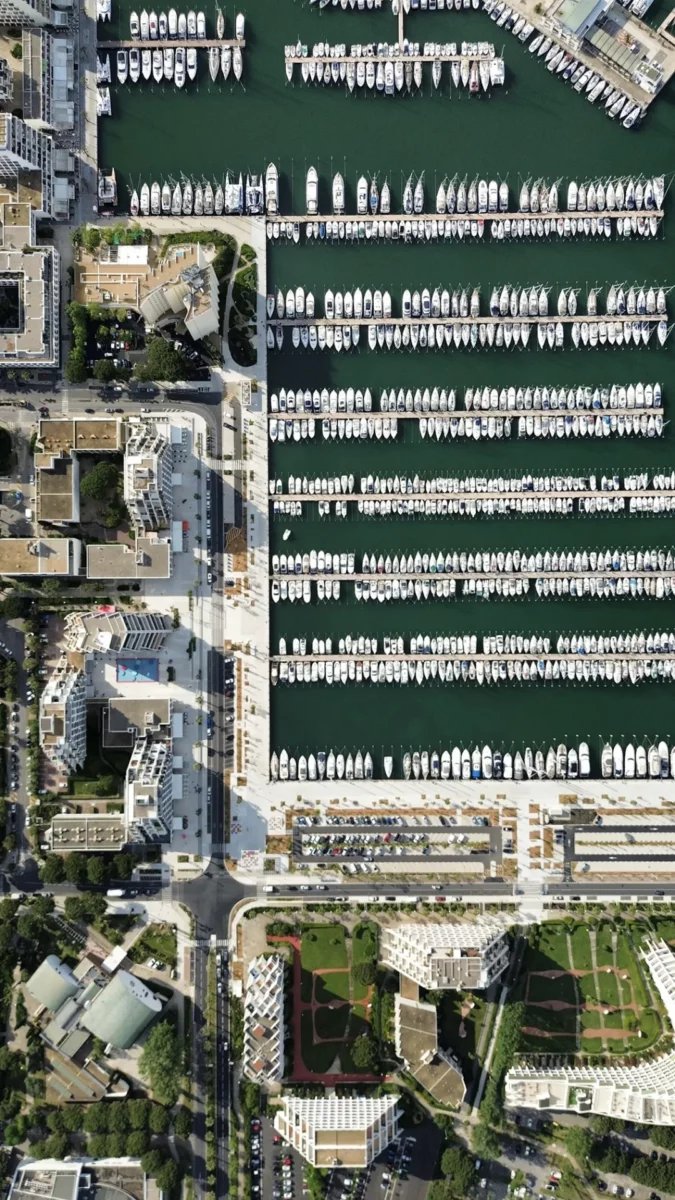
However, the futuristic city envisioned by Jean Balladur in 1963 is a model of environmental urbanism, promoting lifestyles that are both modern and nature-oriented, favoring pedestrian life and the slow rhythm of the sun’s course. Inspired by the Mayan pyramids of Teotihuacan and the white concrete curves of Brasilia, Balladur managed to blend the geometry of modern architecture with its pyramidal shapes, with the coastal dunes and the Cévennes mountains.
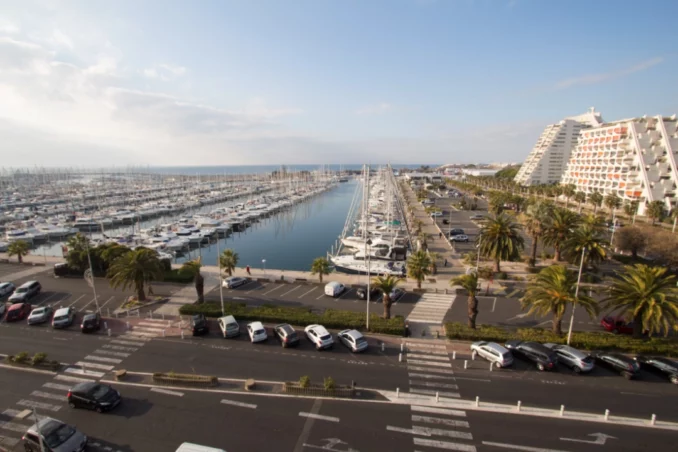
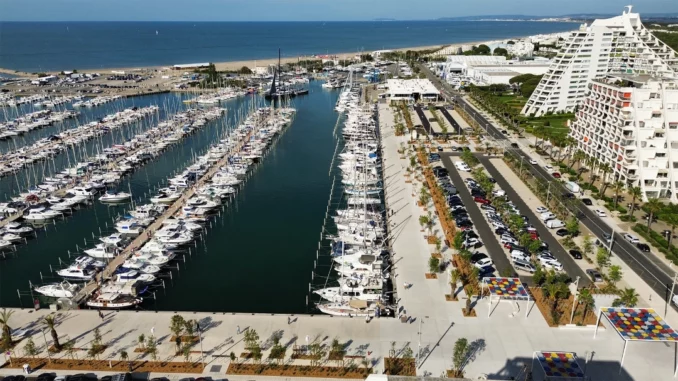
Landscape architect Pierre Pillet designed a forest network of over thirty thousand trees, and fifty years later, an equal number of umbrella pines, plane trees, and white poplars protect the Languedoc city from the assaults of salt and wind. La Grande Motte has undoubtedly become a green and blue city, in touch with the sky, earth, and sea.
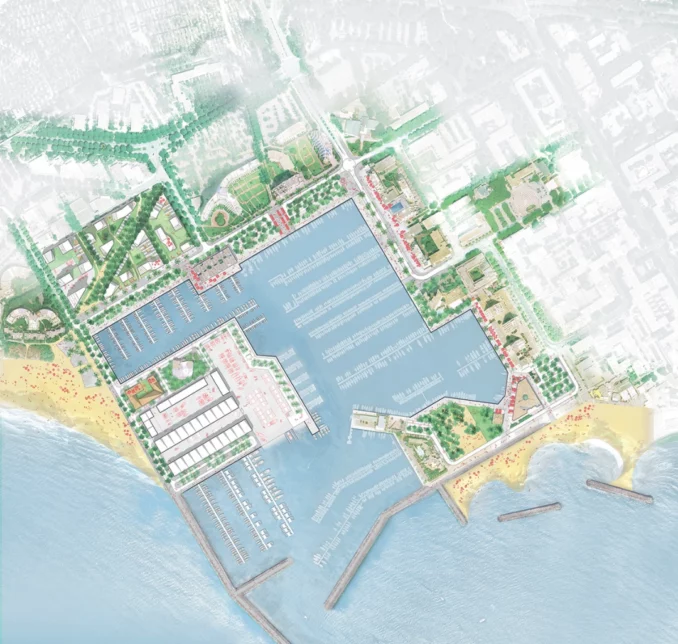
From a summer resort occupied by vacationers, La Grande Motte is also striving to become a full-fledged city, living year-round in interaction with the neighboring territories of the Pays de l’Or in the Montpellier agglomeration. Nevertheless, the city center, centered around the port, required significant renovation. This is the mission undertaken by the Leclercq Associés agency, which here delivers the first stage of an ambitious project that reconnects with the progressive spirit of the place, anticipating the major territorial and social changes to come.
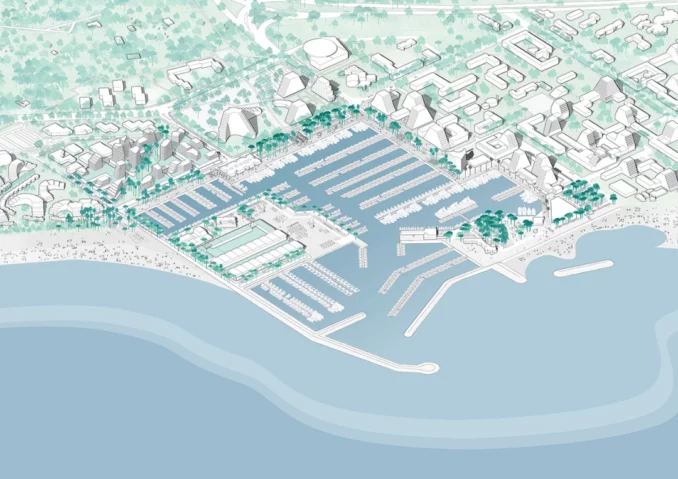
Showcase of the Languedoc Nautical Industry, the Ville Port project rindeed addresses the major challenges of the 21st century and aims to be a model of a resilient and sustainable city, continuing the Balladurian gesture while updating it.
Firstly, it brings together the Levant and Couchant neighborhoods by activating the public spaces of the port: the famous promenade from beach to beach, followed by the construction of the new Colline district.
The new district becomes the link between the Levant and Couchant neighborhoods,establishing the landscape transition between the back- port composed of natural and landscaped elements and the currently very mineral port. Finally, it offers innovative ways of living, worthy of a city initially designed as «futuristic».
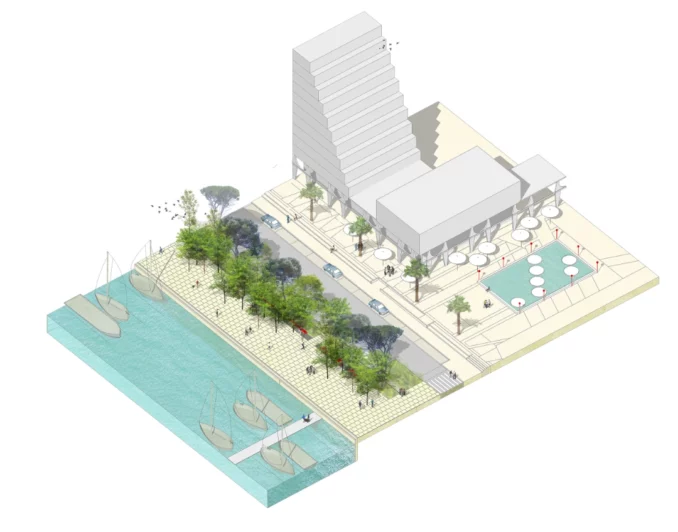
The housing units are organized around a foundation of possibilities and fertile ground, offering new ways of living by hybridizing work and living spaces.
Jean Balladur’s legacy evokes a strong connection between the built environment and nature, which has guided the project: giving significant space to vegetation, encouraging behaviors and uses aimed at strolling, sports, and observing vast horizons, and placing natural elements and bioclimatic considerations at the very heart of the design.
Pompidou docks Regains its Festive Atmosphere
La Grande Motte is an outdoor city. Its vibrant local life is reflected in the intense use of public spaces. The port promenade is the backbone of this vitality, serving as a hub for movement, socializing, commerce, and festivity.
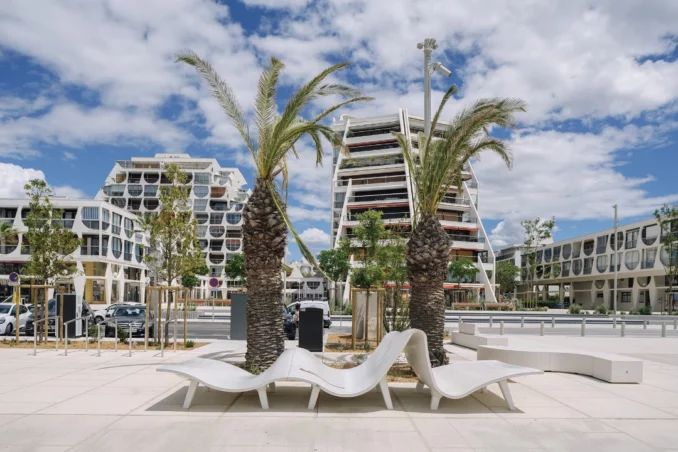
The docks are organized with a dual logic of promenades and plazas, accommodating the seasonality and lifestyle of boaters. The entire pedestrian and cycling area is designed to handle intense flows and uses, especially during the summer. A 1.5-kilometer promenade, with a 7-meter wide quay freeboard doubled with a tree-lined overwidth, connects beach to beach, circling the port.
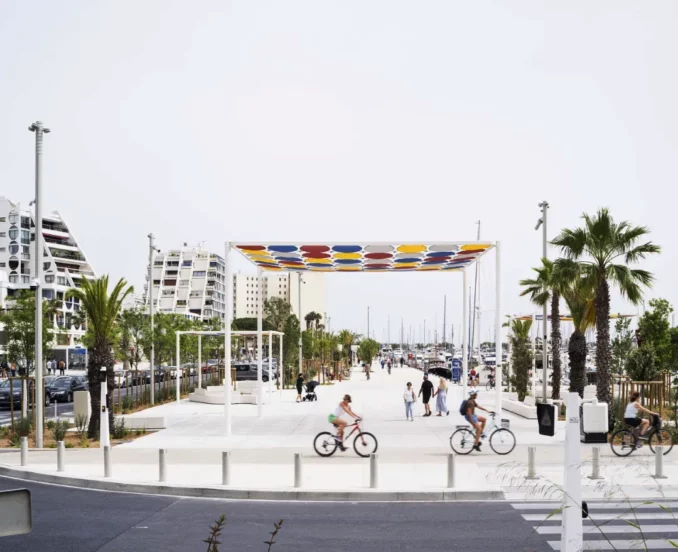
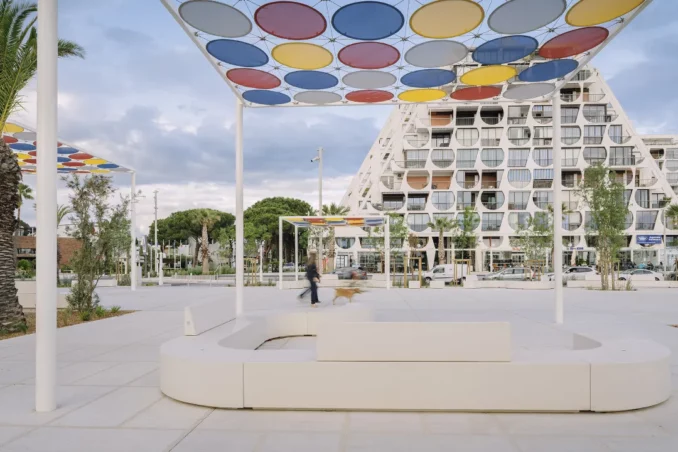
In addition to installing urban furniture that aligns with this ambition, the requalification of Pompidou docks extended to the façades. To restore visibility to the seaside resort’s iconic architecture, the Leclercq agency designed new glass extensions for the ground-floor shops, expanded the terraces, and worked on the continuity of the paving up to the port basins.
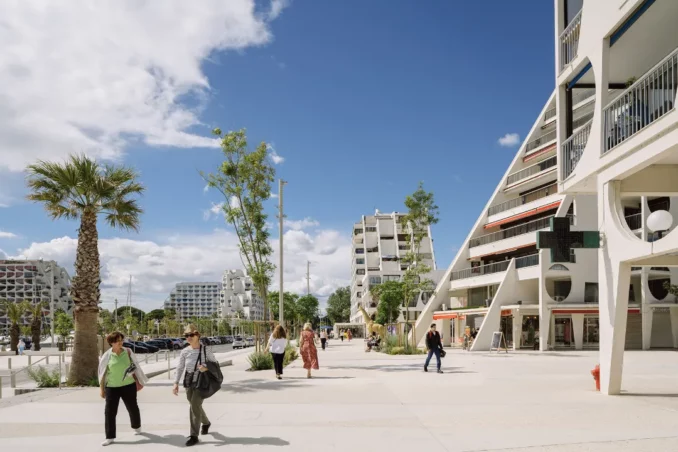
Another important issue is the development’s ability to respond to increasingly frequent heat waves. Planting 245 deciduous trees and transplanting fifty palm trees is an initial solution. But this balance between the original mineral quality and the presence of vegetation is accompanied by a thoughtful approach to the sunlight exposure of these public spaces. The existing and projected urban morphology creates sunlit spaces in winter, others shaded year-round, and provides urban cool islands.
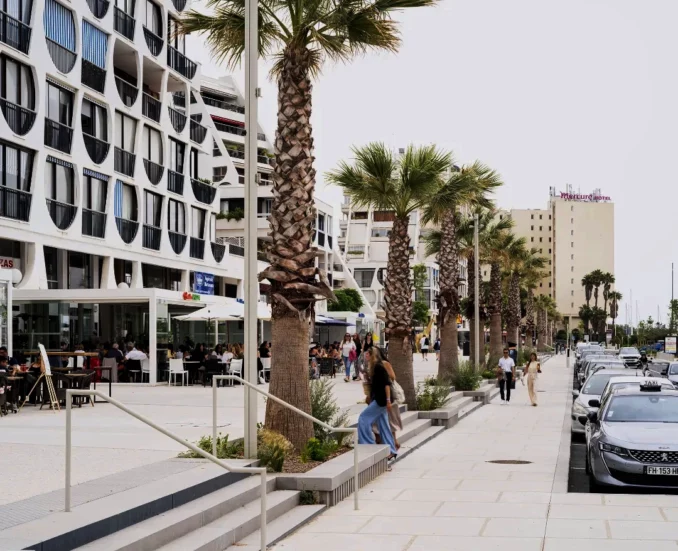
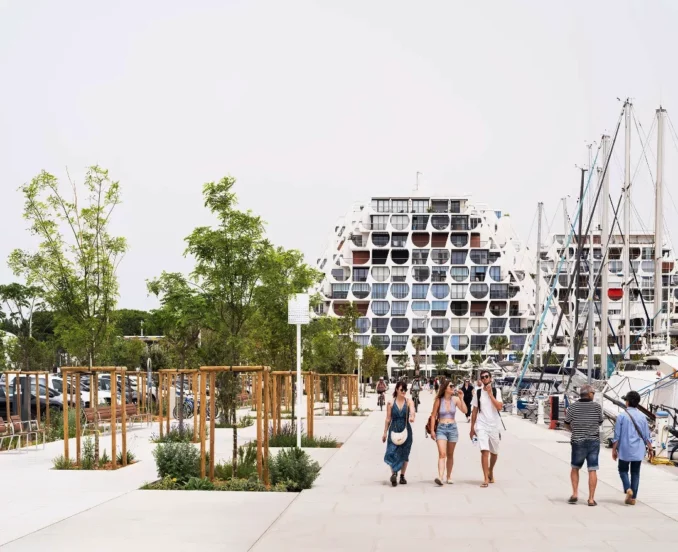
Finally, the public space lives according to several temporalities: from strolling to daily jogging, from long summer evenings to major annual events such as the boating fair and festivals…
La Grande Motte dock’s width allows for the deployment of seating furniture, colorful geometric-patterned shade structures, a market, and plazas and spaces for activities linked to the city center.
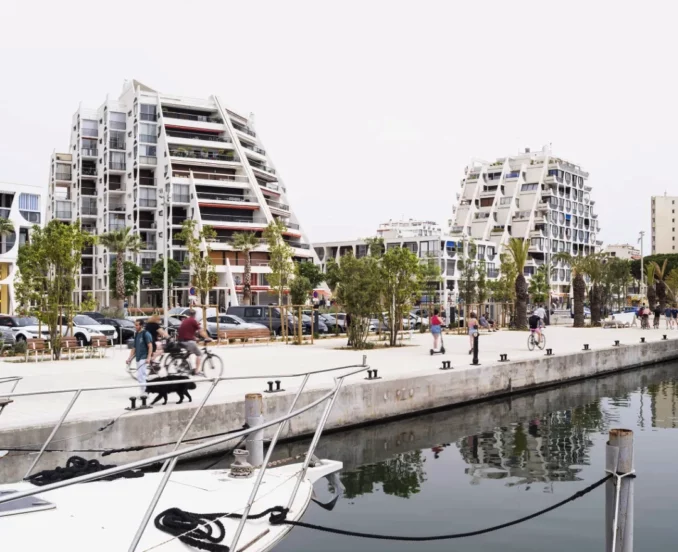
This extends Jean Balladur’s vision of a total work, from the design of furniture to the patterns and textures of the ground.
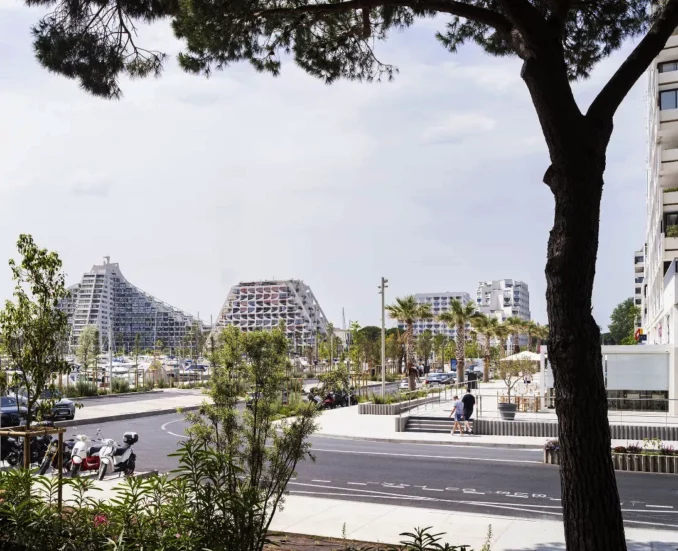
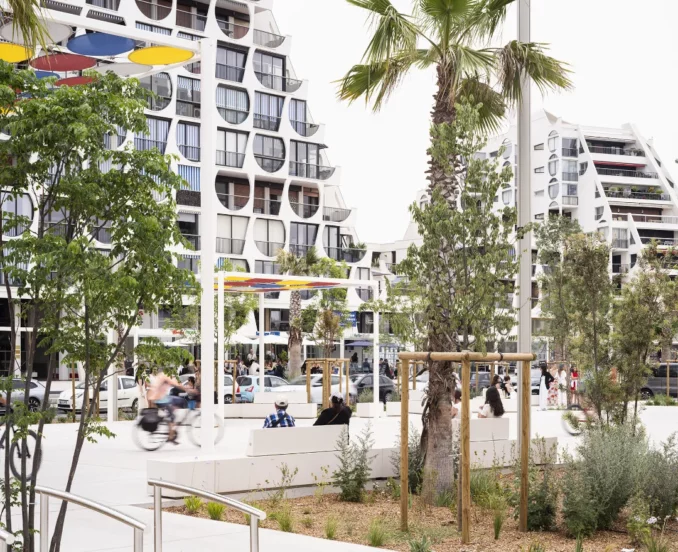
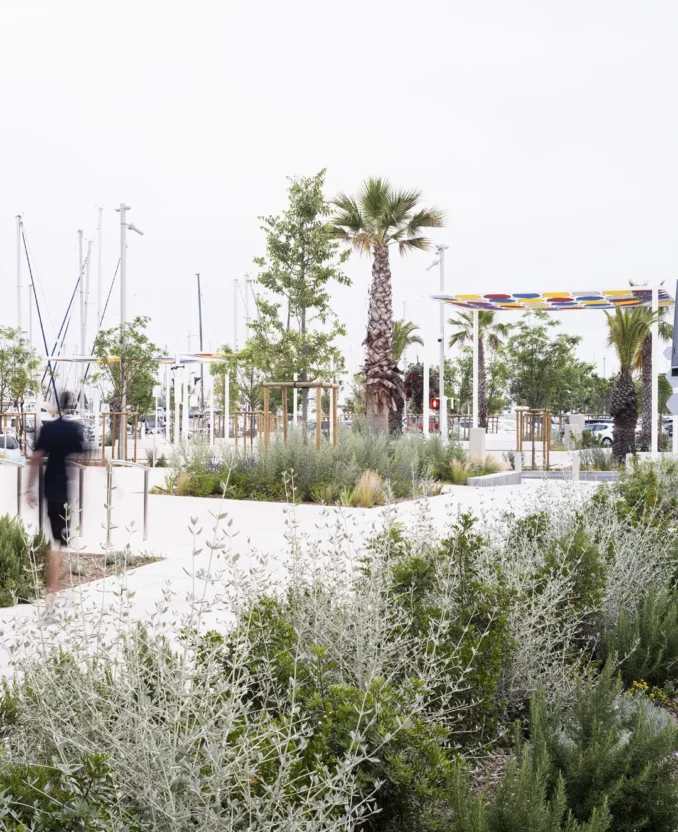
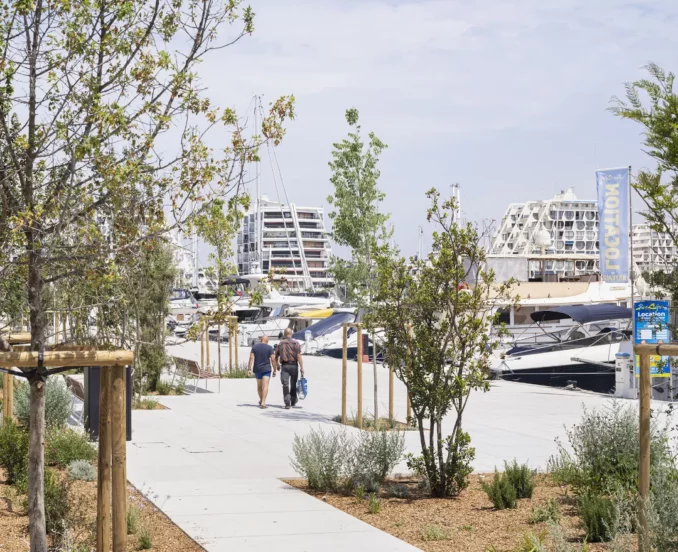
At dusk, lighting masts gently illuminate the docks, creating urban stage effects, while pedestrian lights highlight shapes inspired by the architectural features of the surrounding buildings.
A new universe emerges, blending plant shadows and architectural patterns.
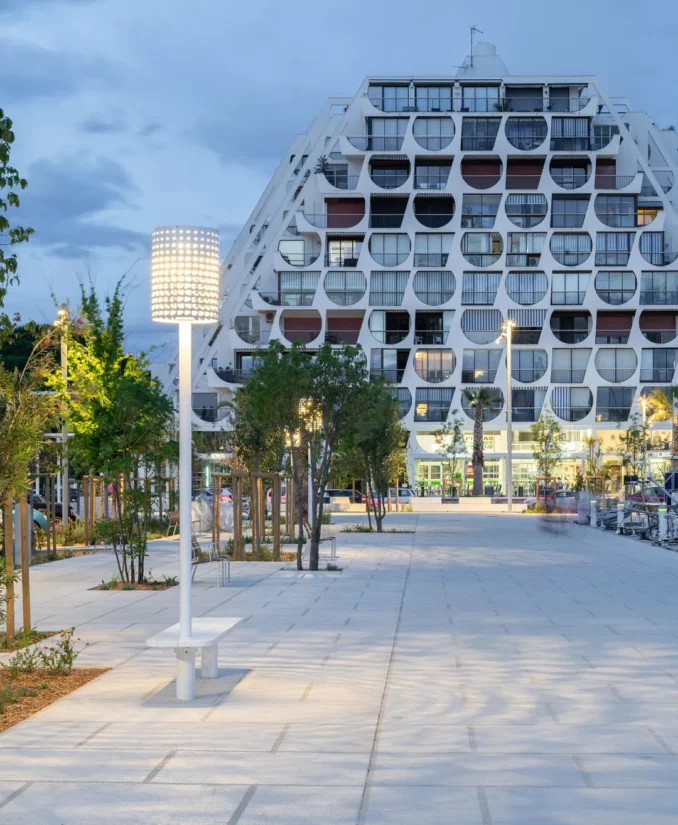
The Florida of Tomorrow
Location: La Grande Motte (France)
Project owner: City of La Grande Motte
Project Manager: L’Or Aménagement
Team: Agence Leclercq Associés > landscape architects – urban planners, coordinator and lead contractor I ARTELIA > technical design office I Agence Guillermin > site supervision for planting and flooring
Companies : COLAS (Lot 1: earthworks, roadway structures, wet networks and furniture) Sols Méditerranée (Lot 2 : concrete); Bouygues Énergies & Services (Lot 3 : dry networks and lighting) Bondon (Lot 3: Lighting) BRL green spaces, planting
Furniture suppliers :
Technilum (lighting)
Santa & Cole (wooden benches) Metalco (concrete furniture)


